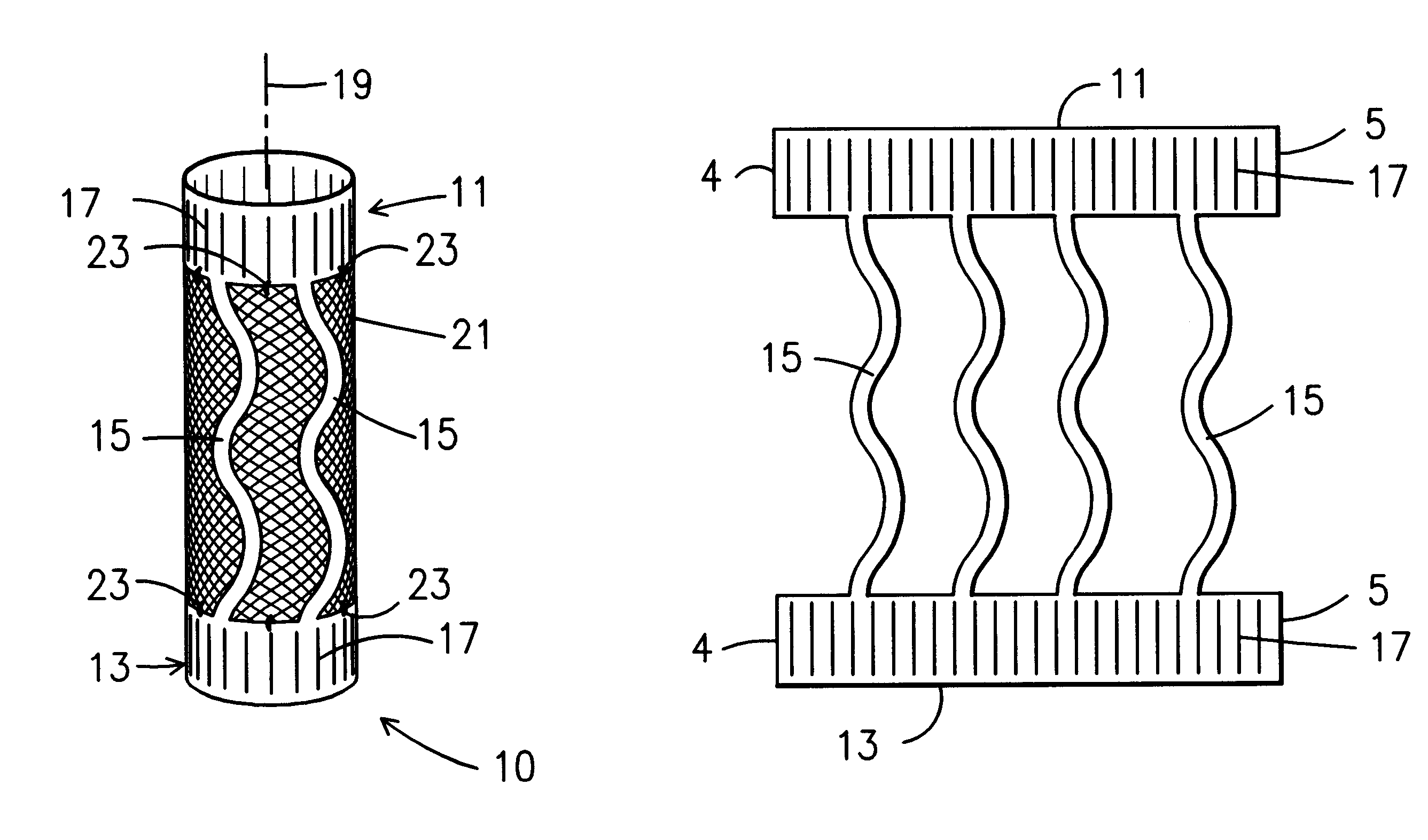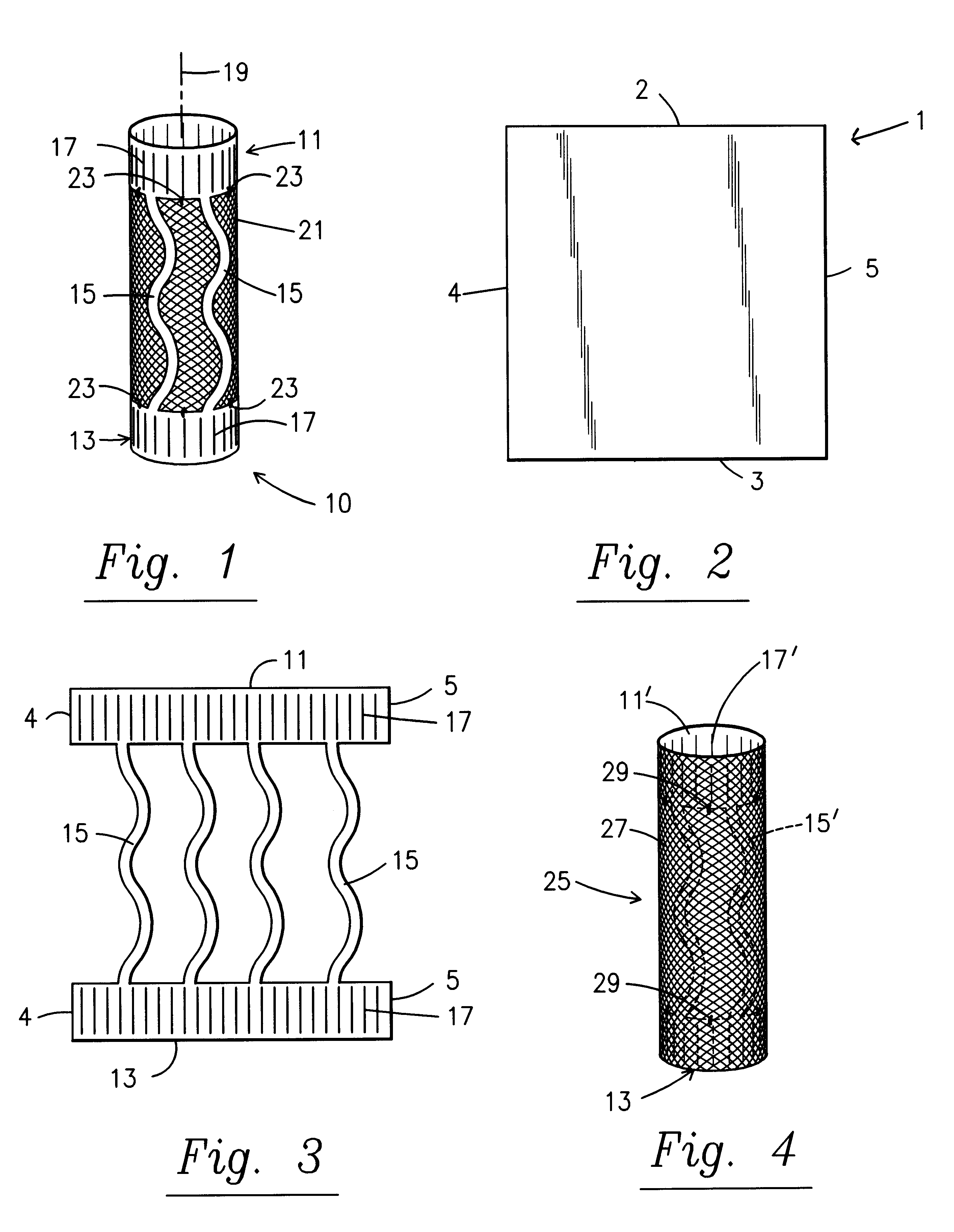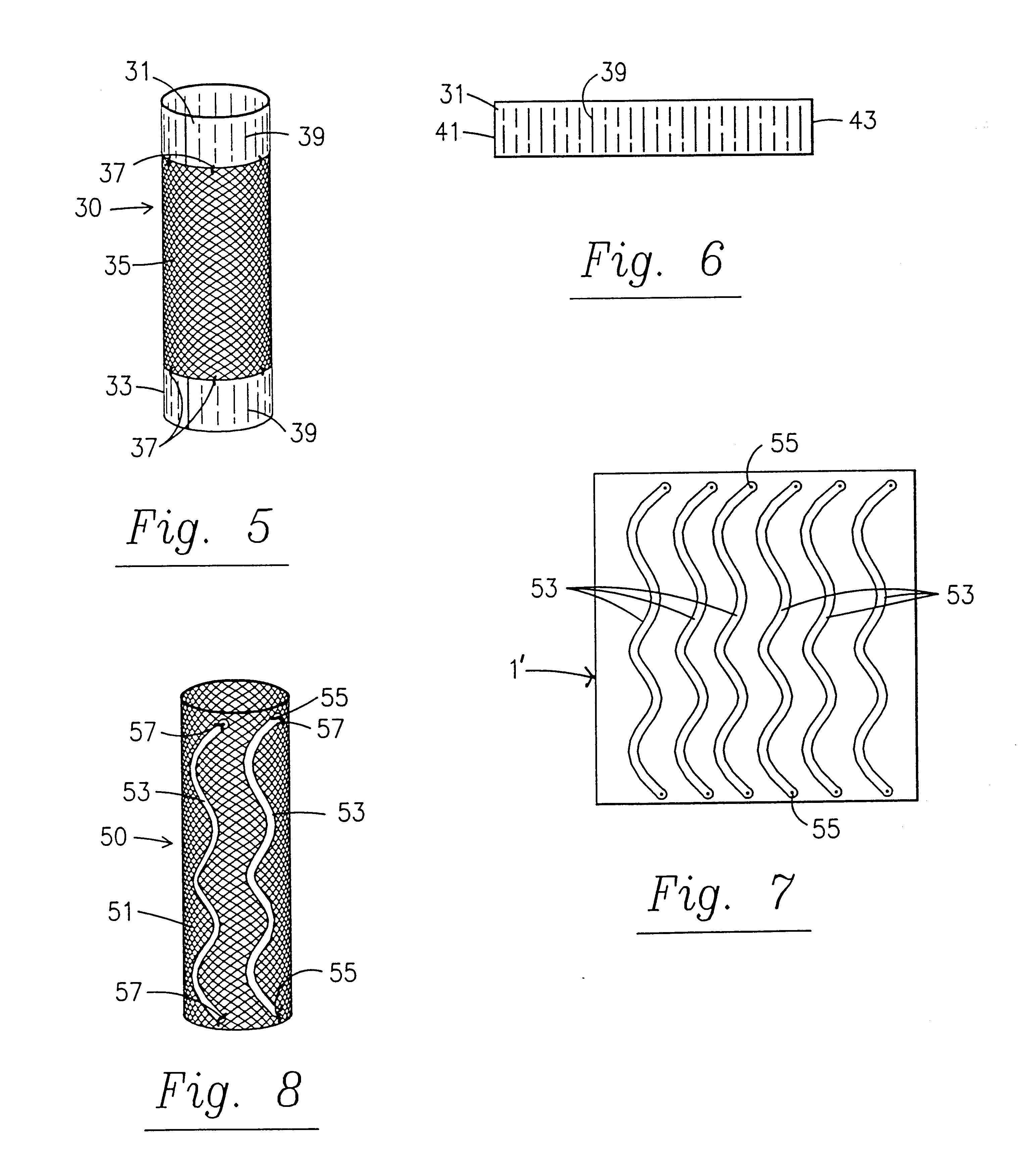Low profile highly expandable stent
a high-expansion, low-profile technology, applied in the field of stents, can solve the problems of increasing the risk of patients, reducing the degree of expansion of the stent, and limiting the degree of expansion of the prior-art stent,
- Summary
- Abstract
- Description
- Claims
- Application Information
AI Technical Summary
Problems solved by technology
Method used
Image
Examples
Embodiment Construction
With reference, first, to FIG. 1, a first embodiment of the present invention is generally designated by the reference numeral 10 and is seen to include a framework consisting of end pieces 11 and 13 interconnected with connecting pieces 15. The end pieces 11 and 13 have spaced slits 17 that allow radial expansion. In the preferred embodiment, slits 17 are formed by cutting the material that form end pieces 11 and 13. The connecting pieces 15 are serpentine in configuration allowing longitudinal expansion along the axis 19 of elongation of the stent 10.
FIG. 2 depicts a piece 1 of NITINOL material that is generally rectangular including ends 2, 3 and side edges 4 and 5. With reference to FIG. 3, it is seen that the sheet 1 of NITINOL material may be cut with any suitable cutting means to form the structure shown in FIG. 3. The structure shown in FIG. 3 includes the end pieces 11 and 13 as well as the connecting pieces 15 before the end pieces 11 and 13 have been rolled into the cylin...
PUM
 Login to View More
Login to View More Abstract
Description
Claims
Application Information
 Login to View More
Login to View More - R&D
- Intellectual Property
- Life Sciences
- Materials
- Tech Scout
- Unparalleled Data Quality
- Higher Quality Content
- 60% Fewer Hallucinations
Browse by: Latest US Patents, China's latest patents, Technical Efficacy Thesaurus, Application Domain, Technology Topic, Popular Technical Reports.
© 2025 PatSnap. All rights reserved.Legal|Privacy policy|Modern Slavery Act Transparency Statement|Sitemap|About US| Contact US: help@patsnap.com



